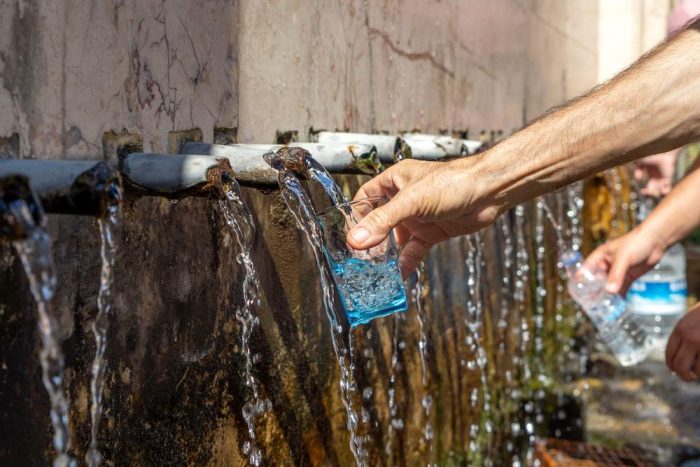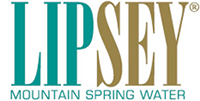
You drink water daily, but do you know where your drinking water comes from? If you fill up your cup from the tap, you are likely drinking water from a public water system supplied by a lake, river, or aquifer. Since water makes up over 60% of your body, it’s pretty important that you have access to clean, safe drinking water. Every time you drink water, it helps bring oxygen and nutrients to your cells, cushions your joints, and flushes out toxins. So while water plays such a vital role in your healthy functioning, it needs to be fresh and usable. Water is everywhere, from coastal beaches to rain clouds in the sky. But not all bodies of water can provide communities with safe drinking water. In fact, only one percent of Earth’s water is fresh and usable! Check out this information on your drinking water sources and what you can do to ensure you get quality drinking water for yourself and your loved ones.
Drinking Water Sources
The most common drinking water sources in the United States come from groundwater, surface water, or recycled water. The water source for your home can depend on whether you live in a large city, town, or small, rural community.
Groundwater
Groundwater refers to water located deep below the Earth’s surface. This type of water gets naturally filtered, which removes some germs and chemicals, depending on various geological factors. The depth of the water can impact the natural filtering process. Deep underground, open spaces known as aquifers store water that runs off from rain and snow. Groundwater can be harvested by water wells or springs.
Surface Water
Surface water refers to water in rivers, lakes, streams, and reservoirs. Water that collects on the ground runs off into these bodies of water and gets replenished by rain and snow. Precipitation and groundwater that reaches the surface is typically not drinkable without further treatment. Of course, while the Earth is covered in large oceans, the only surface water you can actually drink is from freshwater sources.
Recycled Water
Recycled water comes from reclaimed sources and gets treated before reusing it for both drinking water and other non-potable uses. Another common term for recycled water is water reclamation, where water might get reused for agriculture, irrigation, or industrial processes. A rainwater collection system can provide a source for water when safe sources for surface or groundwater are unavailable.
Public vs. Private Water Sources
Public water systems are regulated and monitored, and a large majority of Americans get their tap water from a public source. Public water sources typically include surface water or groundwater, though the water may come from a river, lake, or aquifer hundreds of miles away. Large cities and towns are more likely to have federally regulated and monitored public water systems, while smaller communities may rely more on groundwater supplied through private wells. Public water systems pump water from surface water or groundwater sources into pipes or tanks that deliver water to your home. Private wells, on the other hand, use underground pipes with water sourced from a nearby underground well on or near the property. Private water sources typically do not have as many federal regulations, which can impact the water quality in your home. If you have a private well, you want to follow safety guidelines and standards for maintaining the well and water quality. Water testing and treatment are necessary to ensure the safety of private water supplies.
Tap Water vs. Bottled Spring Water
The water source can impact the quality and benefits you get from drinking water. Tap water provided by public sources goes through a filtration process where the water gets disinfected with chlorine and other chemicals that can become environmental pollutants as a byproduct of the treatment process. Tap water also contains fluoride, which helps prevent tooth decay in small doses, but excessive consumption can lead to digestive issues and weakened bones. In older homes and buildings, old copper pipes that carry water into the home can become corroded and leach lead into the water.
Spring water, on the other hand, comes from natural sources, where the water gets filtered naturally. Unlike tap water, spring water is full of beneficial minerals that do not get removed with a heavy filtration process. Minerals like bicarbonate, calcium, and magnesium can be present in natural spring water. Spring water also tastes fresher, in large part due to the lack of chemicals that get added during the filtration process for tap water. Spring water gets bottled at the source, like from a natural, mountain, or artesian spring. You can get bottled spring water delivered right to your home or workplace and enjoy its fresh flavor and naturally occurring minerals.
The Water Cycle
Water continuously circulates between the atmosphere and the Earth through what’s known as the water cycle or hydrologic cycle. The water cycle has five distinct processes: evaporation, transpiration, condensation, precipitation, and runoff. Water shifts from its liquid state to a vaporous state during the evaporation process, which you might notice when the air feels moist on a humid day. Plants and vegetation all around the world also convert liquid water into vapor, releasing it into the air. Then this water vapor in the air turns into clouds, fog, dew, and frost, which returns the water to its liquid state, known as condensation. Water runs off into the oceans, makes its way into the soil, and fills up nearby lakes, rivers, and streams. As water fills up aquifers deep underground, water pressure causes this groundwater to move above ground into what’s known as a spring.
Lipsey: Your Trusted Spring Water Delivery Service
Lipsey Mountain Spring Water provides bottled water delivery services with high-quality natural spring water fresh from the Blue Ridge Mountains. This pure spring water gets bottled into glass receptacles that are recyclable and help keep the water’s flavor fresh and clean. Unlike plastic or metal bottled water, Lipsey’s glass bottled water service won’t have any yucky aftertaste. Experience refreshing mountain spring water when you sign up for Lipsey’s premiere bottled water delivery service in the Atlanta area. Lipsey has brought quality, fresh spring water to the Atlanta community for over 30 years. We utilize a minimal filtration process that only removes fine particulates and leaves naturally occurring minerals for your health benefits. At Lipsey Water, we never treat our fresh mountain spring water with chemicals or preservatives and only use natural purification techniques. Plus, our spring water comes in packaging that is both attractive and sustainable.
Order Quality Water Today!
Order Lipsey bottled water delivery service and receive pure mountain spring water bottled in pharmaceutical-grade glass bottles with top-of-the-line hot and cold dispensers. At Lipsey Water, we pride ourselves on offering courteous and professional delivery and customer service with a customizable delivery schedule and regular maintenance. Contact us to learn more about our fresh mountain spring water and how you can skip the tap water and enjoy the best-tasting water in Atlanta.
